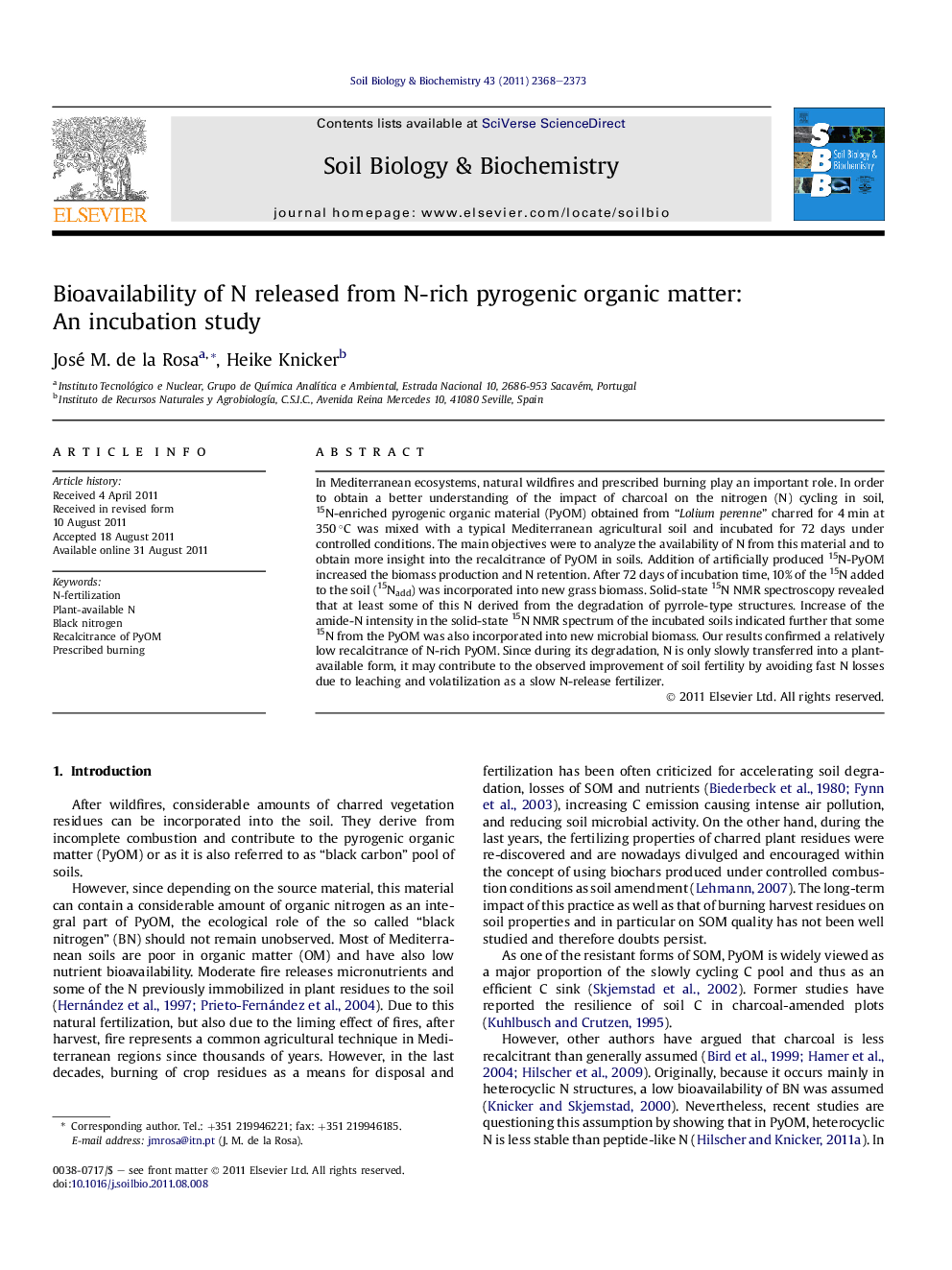| Article ID | Journal | Published Year | Pages | File Type |
|---|---|---|---|---|
| 2025158 | Soil Biology and Biochemistry | 2011 | 6 Pages |
In Mediterranean ecosystems, natural wildfires and prescribed burning play an important role. In order to obtain a better understanding of the impact of charcoal on the nitrogen (N) cycling in soil, 15N-enriched pyrogenic organic material (PyOM) obtained from “Lolium perenne” charred for 4 min at 350 °C was mixed with a typical Mediterranean agricultural soil and incubated for 72 days under controlled conditions. The main objectives were to analyze the availability of N from this material and to obtain more insight into the recalcitrance of PyOM in soils. Addition of artificially produced 15N-PyOM increased the biomass production and N retention. After 72 days of incubation time, 10% of the 15N added to the soil (15Nadd) was incorporated into new grass biomass. Solid-state 15N NMR spectroscopy revealed that at least some of this N derived from the degradation of pyrrole-type structures. Increase of the amide-N intensity in the solid-state 15N NMR spectrum of the incubated soils indicated further that some 15N from the PyOM was also incorporated into new microbial biomass. Our results confirmed a relatively low recalcitrance of N-rich PyOM. Since during its degradation, N is only slowly transferred into a plant-available form, it may contribute to the observed improvement of soil fertility by avoiding fast N losses due to leaching and volatilization as a slow N-release fertilizer.
► Application of 15N-enriched PyOM as soil amendment increased plant growth. ► Fast release of 15N and its incorporation into new plant biomass was observed. ► Black N, important constituent of PyOM, plays a key role in C and N cycling in soils. ► NMR spectroscopy indicated that pyrrolic N of PyOM is less stable than amide N. ►Our studies suggest that N-rich PyOM may be an efficient slow-release-N-fertilizer.
